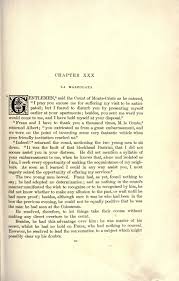
Introduction
The Count of Monte Cristo, written by Alexandre Dumas, is widely regarded as one of the greatest novels of the 19th century. Published in 1844, this tale of revenge and redemption delves into profound themes such as justice, betrayal, and the resilience of the human spirit. Its relevance persists today, resonating with contemporary readers as they confront similar challenges in matters of morality and vengeance.
A Brief Overview of the Plot
The novel follows the life of Edmond Dantès, a young sailor who is wrongfully imprisoned due to the treachery of his enemies. After years of solitude, he escapes from prison and discovers a hidden treasure on the Isle of Monte Cristo. Armed with wealth and knowledge, Dantès assumes the identity of the Count of Monte Cristo and meticulously orchestrates his revenge against those who betrayed him. This narrative arc reflects deep philosophical questions about the nature of justice and the limits of vengeance.
Impact and Adaptations
The Count of Monte Cristo has not only captivated readers for generations but has also inspired numerous adaptations across various mediums. From film and theatre to animation and even video games, this story’s adaptability speaks to its universal themes. Notable film adaptations include the 2002 version starring Jim Caviezel, which introduced the classic tale to a new audience and reignited interest in Dumas’s work.
Themes and Relevance Today
The novel’s core themes remain pertinent in today’s society. Concepts of betrayal and the thirst for retribution can be observed in various aspects of life, whether in personal relationships or socio-political dynamics. The depth of Dantès’s character development—evolving from a naive young man to a wealthy man driven by vengeance—offers readers a cautionary tale about the cost of revenge, suggesting that the quest for justice can lead to destructive outcomes.
Conclusion
The Count of Monte Cristo continues to be a significant literary piece, offering readers a complex narrative that examines the human condition. Its enduring popularity illustrates a timeless human fascination with betrayal, hope, and the complexities of justice. As it remains relevant in modern discourse, this classic novel can inspire reflection on personal grievances, the quest for redemption, and the ethical implications of revenge. Those who delve into Dumas’s rich prose will invariably discover not only a thrilling adventure but also profound insight into the intricacies of human relationships.
You may also like

The Literary Influence of Zadie Smith

The Literary Legacy of Bernard Cornwell

The Enduring Legacy of Sylvia Plath
SEARCH
LAST NEWS
- Remembering Wendy Richard: The Promise to Co-Star Natalie Cassidy
- How Did Anglian Water Achieve an ‘Essentials’ Rating for Mental Health Accessibility?
- Shai Hope Leads West Indies in T20 World Cup Clash Against South Africa
- What We Know About Weston McKennie: Future at Juventus and Past at Leeds
- What We Know About the Upcoming Live Nation Antitrust Trial